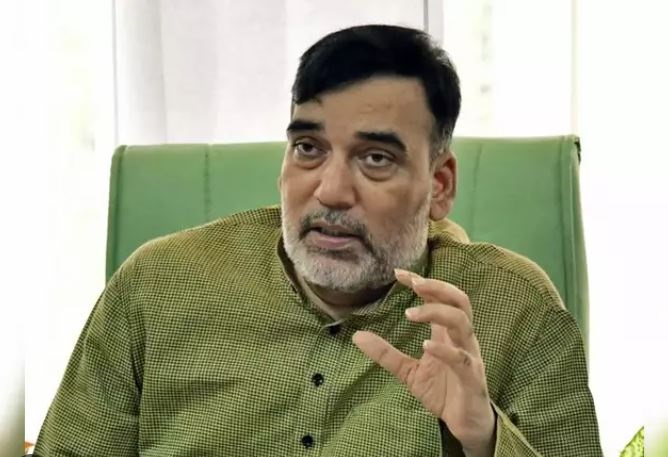 English
English

As Delhi’s air quality continues to remain in the ‘very poor’ category, with an AQI of 306, Delhi, Environment Minister Gopal Rai on Monday said that the second phase of Graded Response Action Plan (GRAP) has been implemented in Delhi

New Delhi: As Delhi's air quality continues to remain in the 'very poor' category, with an AQI of 306, Delhi, Environment Minister Gopal Rai on Monday said that the second phase of Graded Response Action Plan (GRAP) has been implemented in Delhi to reduce the effect of increased pollution in the national capital.
The Environment Minister also noted that a meeting has been called on Monday at 12 p.m. with all the concerned departments in connection to the execution of the GRAP phase 2 in Delhi.
"The cold has started increasing in Delhi and the speed of the wind has decreased, this may result in an increase in pollution... The particulate matter is staying near the ground.
The second phase of GRAP has been implemented in Delhi... A meeting has been called with all the concerned departments to discuss the execution of the GRAP phase 2," Rai told ANI.
"The weather is not in our hands but the sources need to be controlled so that the effect of pollution on the health of the people is reduced as much as possible," the Environment Minister added.
When asked about the steps being taken to decrease pollution in the national capital, Gopal Rai said that GRAP 2 is mainly about cleaning and water sprinkling.
"GRAP 2 is mainly about cleaning and water sprinkling. Under GRAP 2, the frequency of buses and trains would be increased. Parking charges would be increased so that people would use less vehicles.
Since winter is increasing, people will be burning bonfires, so Resident Welfare Association (RWA) would be guided to provide heaters to their people," the Environment Minister said.
"A meeting has been called at 12 pm today... We have spoken to the environment ministers of the surrounding states and they have assured us that they will take action on stubble burning... Due to Diwali, stubble and Dussehra, the next 10 to 15 days are very crucial for Delhi," Rai added.
Meanwhile, the overall air quality in the national capital on Monday morning was recorded in the 'Very Poor category', with the Air Quality Index (AQI) at 306 against 302 recorded on Sunday afternoon, as per SAFAR-India.
A cyclist at Indian Gate, Sanjay Chaudhary, while speaking to ANI, said "The situation is not good at all".
"I think pollution levels have been rising in Delhi for the past 10-12 days. We can feel it in our eyes today. The smog is dense...I think the situation is not good at all. We, the cyclists, carry masks and bandanas with us, but I don't think there is any alternative, and if you have to be on the road, you have to face it," Sanjay Chaudhary said.
The overall air quality in the National Capital deteriorated from the 'poor' category to the 'very poor' category, with the Air Quality Index at 302 on Sunday afternoon, as per data from SAFAR-India.
On Sunday morning, the overall air quality was recorded in the 'poor category' with an AQI of 266 against 173 recorded on Saturday.
The Air Quality Index is a tool for effective communication of air quality status to people in terms that are easy to understand. There are six AQI categories, namely Good + Satisfactory, Moderately Polluted, Poor, Very Poor, and Severe.
Each of these categories is decided based on the ambient concentration values of air pollutants and their likely health impacts (known as health breakpoints). According to the AQI scale, the air quality check between 0 and 50 is "good", 51 and 100 "satisfactory", 101 and 200 "moderate", 201 and 300 "poor", 301 and 400 "very poor", and 401 and 450 "severe". (ANI)
No related posts found.